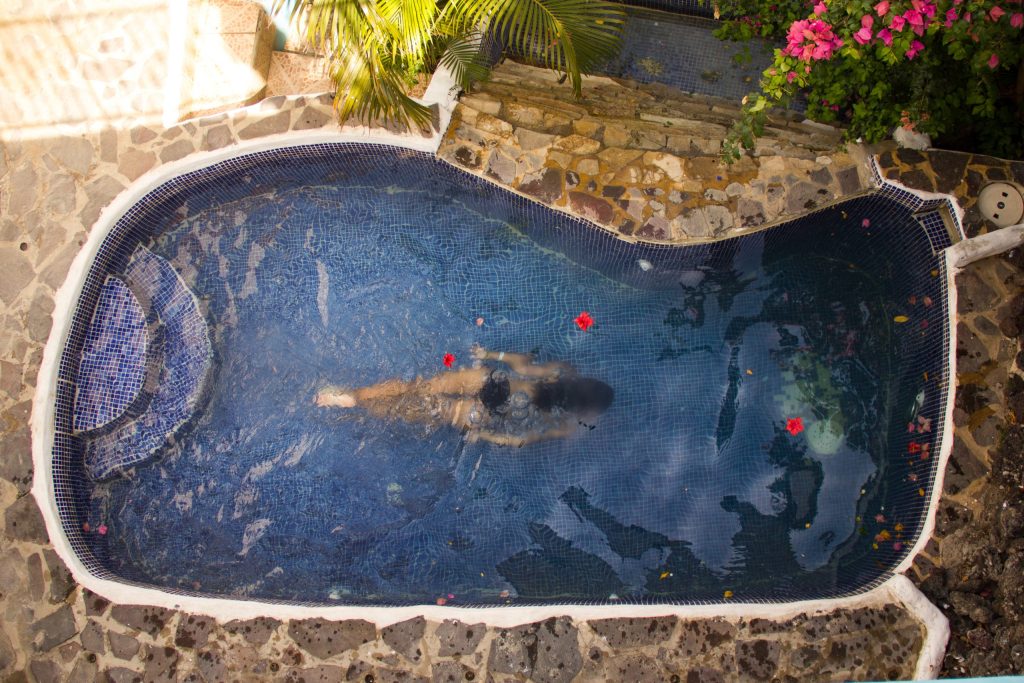Saltwater Pool Conversion: What it Is and Why You May Want It
As more pool owners seek efficient, eco-friendly, and cost-effective ways to maintain their swimming pools, saltwater pool conversions have become increasingly popular. Not sure if saltwater pool conversion is right for you? Let’s clear up what a saltwater pool is, the benefits of converting, and why you might want to consider this option for your pool.
What is a Saltwater Pool?
Definition and Basic Concept
A saltwater pool uses a salt chlorinator to convert salt into chlorine, which sanitizes the pool. Unlike traditional chlorine pools that require manual addition of chlorine, saltwater pools generate chlorine continuously through an electrolysis process.
How Saltwater Pools Work
The salt chlorinator is installed in the pool’s filtration system. The chlorinator uses salt added to the pool to produce chlorine. This process, known as saltwater chlorination, ensures a consistent and balanced chlorine level, providing clean and safe water.
Benefits of a Saltwater Pool Conversion
Health and Comfort
Saltwater pools are known for being gentler on the skin and eyes compared to traditional chlorine pools. The lower chlorine levels reduce the risk of skin irritation and red eyes, making swimming a more pleasant experience.
Cost-Effectiveness
While the initial investment for converting to a saltwater pool can be costlier, the long-term savings are significant. Saltwater pools require fewer chemical purchases and less frequent maintenance, lowering overall costs.
Environmental Impact
Saltwater pools are more environmentally friendly than traditional pools. They reduce the need for harsh chemicals, minimizing chemical runoff and environmental pollution. This makes saltwater pools a greener choice for eco-conscious pool owners.

Maintenance and Care for Saltwater Pools
Regular Maintenance Tasks
Maintaining a saltwater pool involves routine checks and balances. Regularly testing the pool’s salinity and chlorine levels, cleaning the cell, and monitoring the water chemistry to ensure everything runs smoothly.
Troubleshooting Common Issues
Common issues in saltwater pools include imbalanced salinity levels and scaling on the chlorinator cell. Regular maintenance and prompt addressing of these issues can prevent larger problems later on.
Why You May Want to Consider a Saltwater Pool Conversion
Improved Swimming Experience
The gentle nature of saltwater makes swimming more comfortable, reducing skin and eye irritation. This enhanced comfort can lead to a more enjoyable swimming experience for you and your family.
Financial Considerations
Although the initial setup cost for a saltwater pool can be high, the long-term savings on chemicals and maintenance make it a cost-effective option over time.
Environmental and Health Benefits
Switching to a saltwater pool reduces your environmental footprint and minimizes exposure to harsh chemicals, promoting a healthier lifestyle for you and the planet.

Consult with Pool Operation Management
Considering a saltwater pool conversion? Contact Pool Operation Management today to explore our consulting and certification services. Our experts are here to help you make the best decision for your pool’s needs.






